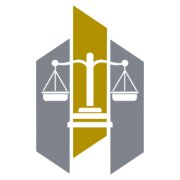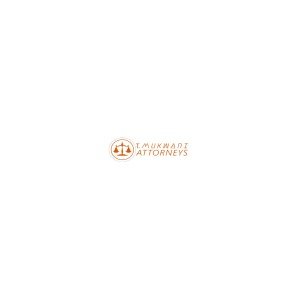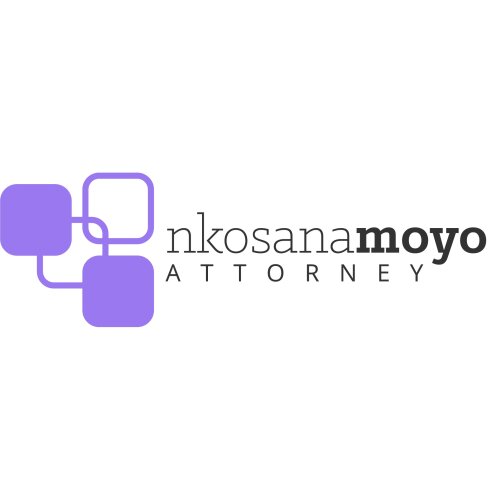Best Sanctions & Export Controls Lawyers in Johannesburg
Share your needs with us, get contacted by law firms.
Free. Takes 2 min.
List of the best lawyers in Johannesburg, South Africa
About Sanctions & Export Controls Law in Johannesburg, South Africa
Sanctions and export controls are vital elements of international trade law, shaping the legal framework for importing and exporting goods, services, and technology in and out of South Africa. In Johannesburg, a major commercial hub, businesses and individuals must navigate complex rules designed to regulate trade with specific countries or entities, ensure national security, and comply with international obligations. These laws affect a broad spectrum of activities, from shipping products overseas to sharing technical data with foreign nationals. The consequences of non-compliance can be severe, including fines, criminal liability, and loss of export privileges.
Why You May Need a Lawyer
You may require specialized legal assistance in sanctions and export controls for several reasons. Common scenarios include entering new foreign markets, responding to government investigations, conducting due diligence on business partners or clients in high-risk jurisdictions, or simply seeking to comply with changing regulations. If your company exports goods, technology, or software from Johannesburg, or if you are dealing with entities from countries facing international sanctions, a lawyer can help you assess risks, interpret regulations, apply for permits, and manage enforcement actions. Legal help is also essential if you are faced with allegations of breaching sanctions or export control laws - either locally or internationally.
Local Laws Overview
In Johannesburg and throughout South Africa, sanctions and export controls are governed primarily by national legislation, including the National Conventional Arms Control Act, the Non-Proliferation of Weapons of Mass Destruction Act, and various Regulations issued by the Department of Trade, Industry and Competition (DTIC). South Africa is also committed to United Nations Security Council sanctions and implements these through the Protection of Constitutional Democracy Against Terrorist and Related Activities Act. The South African Reserve Bank regulates financial sanctions, while customs procedures are managed by the South African Revenue Service (SARS). Exporters must frequently check if their goods or partners are subject to any restricted party lists or embargoes. Johannesburg-based businesses must also be aware of sector-specific regulations, such as those affecting tech, pharmaceuticals, and military or dual-use items.
Frequently Asked Questions
What are export controls?
Export controls are laws and regulations that restrict or prohibit the export of certain items, technology, or information for reasons related to national security, foreign policy, or international obligations.
What is the difference between sanctions and export controls?
Sanctions are broader restrictions typically imposed on countries, entities, or individuals to prevent commerce or financial dealings, while export controls focus specifically on limiting the movement of goods, technology, or services across borders.
Do South African sanctions affect all Johannesburg businesses?
Not all businesses are affected, but any entity engaging in cross-border trade or financial transactions should check that they are not dealing with sanctioned countries, individuals, or entities.
How do I know if my product is subject to export controls?
Check the South African Consolidated List of Controlled Goods and consult the relevant regulatory bodies, such as the DTIC or the Non-Proliferation Council. Items with military, dual-use, or sensitive technologies are most likely to be regulated.
I want to export from Johannesburg to a country under UN sanctions. What do I do?
You must obtain legal advice and seek proper authorizations where possible. In most cases, direct exports to sanctioned countries are prohibited without a special license or government authorization.
What are the penalties for violating sanctions or export controls in South Africa?
Penalties can include administrative fines, loss of export privileges, criminal prosecution, confiscation of goods, and reputational damage.
Are there record-keeping requirements for exports?
Yes, exporters must maintain records of export transactions, licenses, end-user certificates, and any correspondence relating to compliance for a period prescribed by law - typically five years.
Can I face penalties for unintended violations?
Yes, strict liability may apply in some cases, meaning you can be penalized even if the breach was unintentional. Intent, however, can affect the severity of penalties.
What should I do if I receive a government inquiry about my exports?
Contact a lawyer immediately. Do not destroy or alter any documents. Cooperate with authorities, but seek legal advice before making formal statements.
How can a lawyer assist with day-to-day compliance?
A lawyer can help set up compliance programs, conduct training, vet business partners, apply for licenses, and handle audits or investigations, greatly reducing your exposure to risk.
Additional Resources
Several resources can assist with sanctions and export controls in Johannesburg:
- The Department of Trade, Industry and Competition (DTIC) offers guidance on controlled goods and export licensing.
- The Non-Proliferation Council manages issues related to weapons of mass destruction and sensitive technologies.
- The Financial Intelligence Centre provides information on financial sanctions.
- The South African Revenue Service (SARS) can assist with customs and clearance procedures.
- The South African Reserve Bank manages compliance with financial sanctions.
Consider consulting with chambers of commerce or industry associations for sector-specific export guidance.
Next Steps
If you need legal assistance with any aspect of sanctions and export controls in Johannesburg, start by gathering all relevant documentation about your proposed or existing transactions. Identify any foreign partners or end-users. Next, consult with a lawyer experienced in sanctions and export controls to review your case, advise on regulatory requirements, and help you implement the necessary compliance measures. For urgent matters, such as government investigations or suspected violations, seek immediate legal counsel. Ongoing legal advice is recommended for businesses actively engaged in cross-border trade to maintain compliance and avoid costly penalties.
Lawzana helps you find the best lawyers and law firms in Johannesburg through a curated and pre-screened list of qualified legal professionals. Our platform offers rankings and detailed profiles of attorneys and law firms, allowing you to compare based on practice areas, including Sanctions & Export Controls, experience, and client feedback.
Each profile includes a description of the firm's areas of practice, client reviews, team members and partners, year of establishment, spoken languages, office locations, contact information, social media presence, and any published articles or resources. Most firms on our platform speak English and are experienced in both local and international legal matters.
Get a quote from top-rated law firms in Johannesburg, South Africa — quickly, securely, and without unnecessary hassle.
Disclaimer:
The information provided on this page is for general informational purposes only and does not constitute legal advice. While we strive to ensure the accuracy and relevance of the content, legal information may change over time, and interpretations of the law can vary. You should always consult with a qualified legal professional for advice specific to your situation.
We disclaim all liability for actions taken or not taken based on the content of this page. If you believe any information is incorrect or outdated, please contact us, and we will review and update it where appropriate.
















